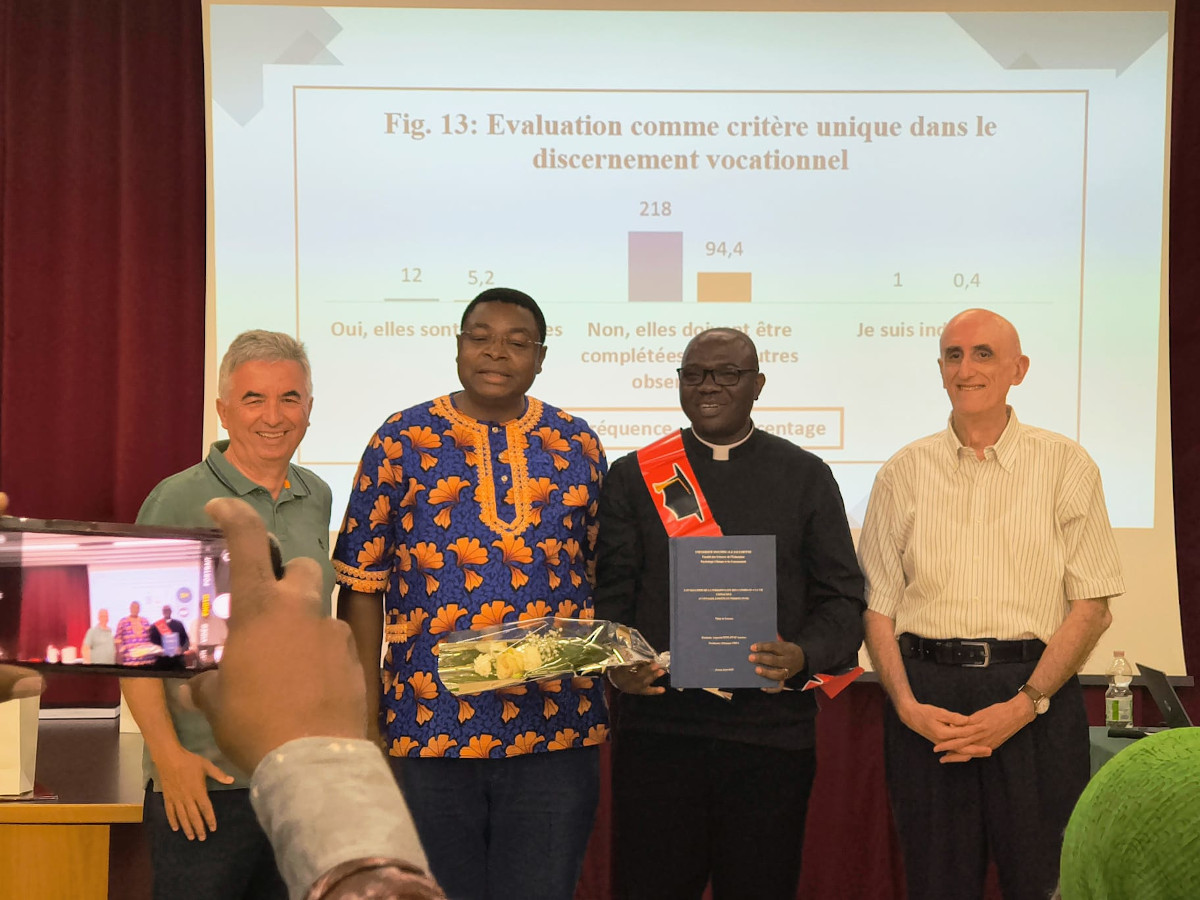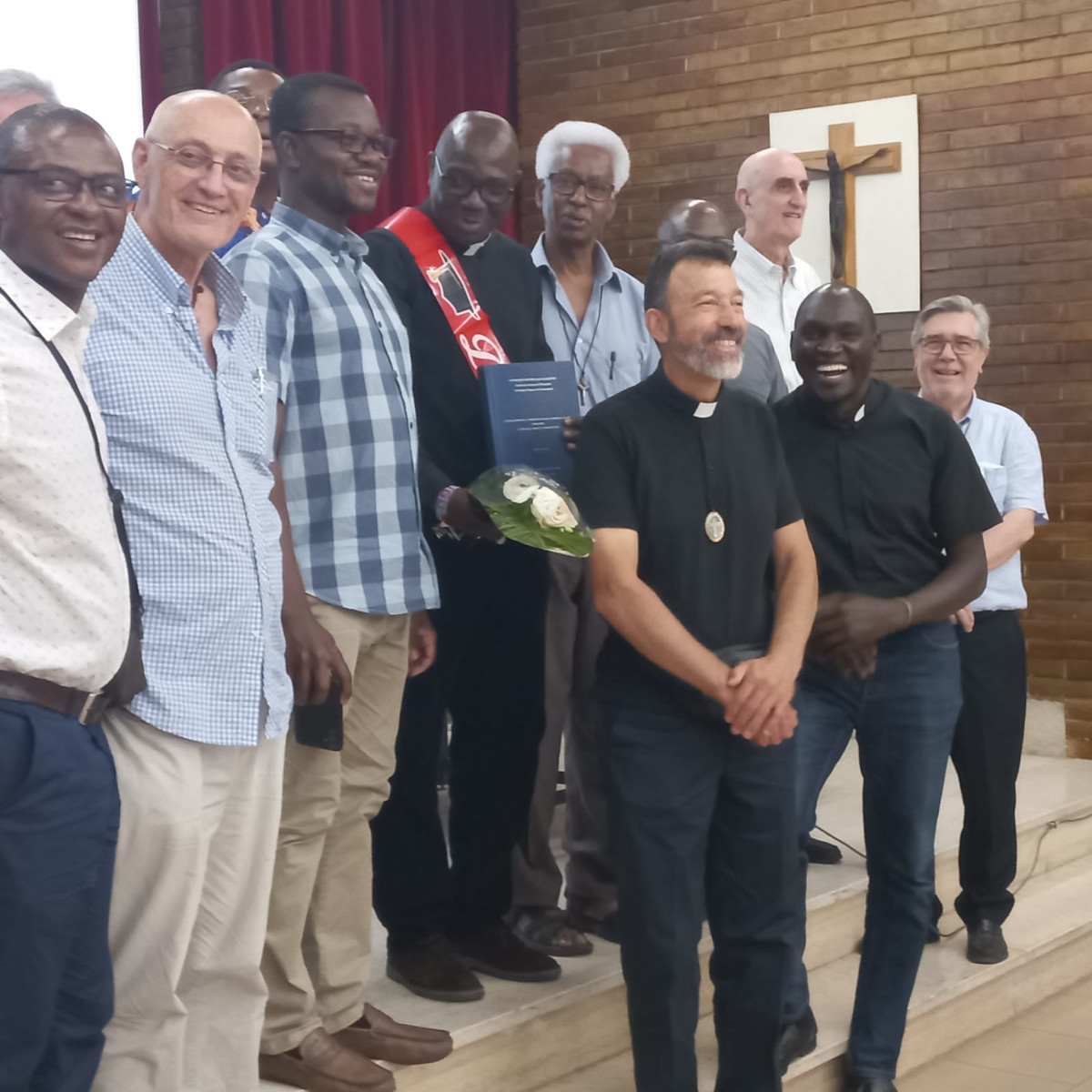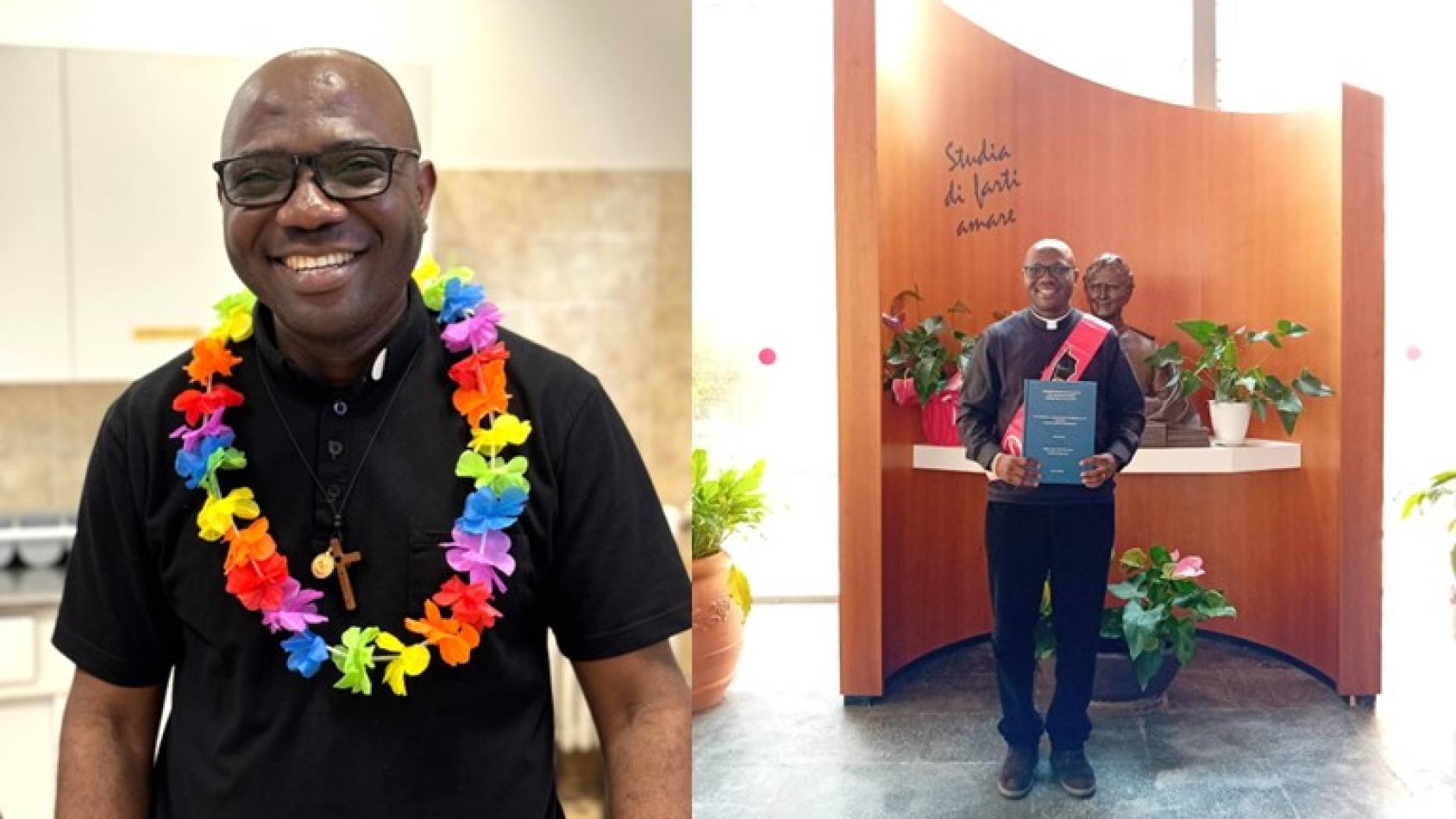Daniel Comboni
Comboni Missionaries
Institutional area
Other links
Newsletter
Friday, June 20, 2025
On 18th June 2025, Father Augustin Fene-Fene Santime, originally from the Democratic Republic of Congo, completed his five-year specialisation programme in Clinical and Community Psychology at the Pontifical Salesian University in Rome. He defended his master’s thesis on the theme of personality psychology, entitled in French: L’évaluation de la personnalité des candidats à la vie consacrée. Avantages, limites et perspectives (“The Psychological Evaluation of the Personality of Candidates for Consecrated Life”).
Father Augustin explains that “this study stems from the awareness that, in an ecclesial context deeply marked by contemporary cultural and anthropological changes, the formation of candidates for consecrated life requires a holistic accompaniment, capable of embracing all dimensions of the human person. From this perspective, psychology – particularly personality evaluation – proves to be a valuable support for vocational discernment, provided it is situated within an ethical, dialogical framework that respects personal freedom.”
The central question guiding his research was: “How is psychological evaluation currently integrated into formation practices?” To answer this, he conducted an exploratory survey among formation personnel, aiming to understand the degree of acceptance of this tool, its practical applications, and the perceived limitations within the context of consecrated life.

The survey involved 231 formators: 5 consecrated laywomen, 108 religious sisters, 11 religious brothers, 33 diocesan priests, and 74 religious priests. What did the results show? Father Augustin responds: “The results reveal broad support for the use of psychological evaluation (93.5%), which is considered useful in deepening knowledge of the candidates, promoting self-awareness, and guiding discernment. The main benefits reported include improved interpersonal relationships and greater vocational clarity.” However, he quickly adds: “There were also critical issues: cultural resistance from candidates (56.3%), a shortage of specialised psychologists (43.7%), perceived inadequacy of the tools in relation to the religious context (41.6%), and insufficient competence among formators in using psychological data. Only 39.4% of formators reported regular collaboration with a psychologist.”
In light of these findings, Father Augustin’s research formulated several recommendations: strengthenining the training of formators in interpreting psychological results; promoting regular and structured collaboration with psychologists; adapting diagnostic tools to the specific characteristics of consecrated life; and encouraging a culture of continuous, integrated, and compassionate evaluation.
The study also invites a move beyond a purely technical view of evaluation, to rediscover its formative and humanising potential. He explains: “Although the survey focused on the perspective of formators, it opens the way for further research involving both candidates and psychologists, in order to build a shared, three-dimensional understanding of formation dynamics. In this way, psychological evaluation can become an authentic instrument for personal and spiritual growth, fully aligned with the goals of consecrated life.”

After a vacation in his home country, Father Augustin – already assigned to the Malawi-Zambia province – will travel to Lusaka, where he will serve as a formator in the novitiate.




